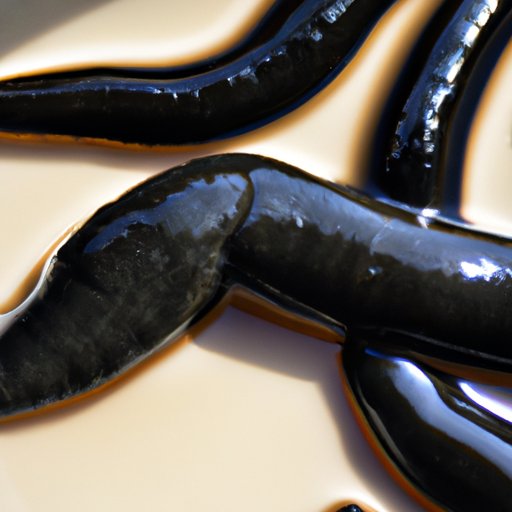
Introduction
When many people think of leeches, they probably picture a scene from an old black and white movie set centuries ago. However, these creatures continue to play a role in today’s modern medicine. Used for millennia, leeches were even prescribed by Hippocrates. In this article, we will explore the history of leeches in medicine, their modern uses, and whether they are still worth the hype.
The Fascinating History of Leeches in Medicine: Are They Still Relevant Today?
Leeches have been used as a medical treatment since Ancient Egypt. Their popularity only grew from there, with Hippocrates, the father of modern medicine, routinely prescribing them in a range of treatments. Leeches were even used by Napoleon’s army doctors as a treatment for wounds, with each regiment carrying a special box of leeches to use in emergency situations.
Leech popularity decreased in the 19th century as advancements were made in medicine, which made the creatures seem outdated. This lack of popularity continued throughout much of the 20th century. However, recent years have seen a resurgence of leech usage.
Medical Leeches: Fact vs. Fiction in Modern Medicine
There are many common misconceptions surrounding the use of leeches in modern medicine. The most common among them is that leeches introduce disease into the patient. This is simply untrue. Medical leeches used in modern medicine are bred in such a way that they are remarkably clean and disease-free.
The scientific facts behind the usage of leeches are fascinating. Leeches contain a range of therapeutic compounds, including anticoagulants and enzymes. When a leech bites an individual, they release these compounds into the tissue. This helps to increase blood flow throughout the area and reduce swelling.
From Ancient Medicinal Practice to Modern Marvel: The Usage of Leeches in Medicine
Leeches are still in use today, with a range of medical applications. One of the most popular of these is in the replantation of severed limbs. When a limb is severed, sometimes the blood vessels are unable to be reattached, which can lead to the death of the replanted limb. In these instances, leeches can be used to improve blood flow to the area.
However, the benefits of leech therapy extend beyond the treatment of severe injuries. Leech therapy can be helpful in treating varicose veins and arthritis, as well as in speeding up the healing process of skin grafts.
The Pros and Cons of Using Leeches in Modern Medicine: Are They Still Worth the Hype?
Like any medical treatment, leech therapy has its advantages and disadvantages. One of the most significant advantages of leech therapy is that it is a natural treatment, free of the synthetic chemicals found in modern medicine. However, leech therapy also comes with some disadvantages, such as the possibility of infection. Additionally, leech therapy requires the use of live animals, which raises ethical concerns for some individuals.
While leeches undoubtedly have their benefits, they are not a cure-all for every ailment. In some cases, modern medicine may be a more effective treatment option.
The Surprising Science Behind Why Leeches Are Making a Comeback in Modern Medicine
Recent research has shown that leeches have more potential benefits than previously believed. For example, they can be used to treat sepsis, a potentially life-threatening condition that can occur after the body is invaded by bacteria. Additionally, leeches can be used to reduce swelling in the body, which can be helpful in the treatment of a range of conditions.
Another reason for the resurgence of leech therapy is an increase in acceptance of traditional and complementary medicine practices in Western medicine. This has led to a renewed interest in medical treatments that were previously viewed as outdated or ineffective.
Conclusion
In conclusion, leech therapy is a fascinating and complex treatment option with a rich history in medicine. While their use may have decreased over time, they are still very much in use today. The potential benefits of this therapy extend far beyond the application in replanting severed limbs. However, like any treatment option, leech therapy has its potential drawbacks. It is essential to weigh the pros and cons carefully before embarking on any medical treatment plan.
We encourage you to do your own research and speak with your doctor about the use of leeches in your own medical care.





